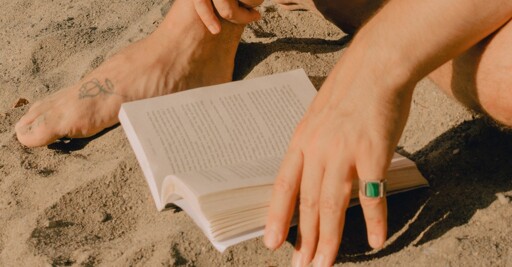This is an edition of The Atlantic Daily, a newsletter that guides you through the biggest stories of the day, helps you discover new ideas, and recommends the best in culture. Sign up for it here.
Explore stories about how the Ivy League broke America, why friendship could be the foundation of lasting love, and more.
How the Ivy League Broke America
The meritocracy isn’t working. We need something new. (From 2024)
By David Brooks
The Type of Love That Makes People Happiest
When it comes to lasting romance, passion has nothing on friendship. (From 2021)
By Arthur C. Brooks
What Really Happened to Malaysia’s Missing Airplane
Five years ago, the flight vanished into the Indian Ocean. Officials on land know more about why than they dare to say. (From 2019)
By William Langewiesche
The Elite College Students Who Can’t Read Books
To read a book in college, it helps to have read a book in high school. (From 2024)
By Rose Horowitch
What Happened When Hitler Took On Germany’s Central Banker
Hans Luther was the principled and respected president of the Reichsbank—but he wouldn’t accede to Hitler’s demands.
By Timothy W. Ryback
A Grand Experiment in Parenthood and Friendship
Would you raise kids with your best pals?
By Rhaina Cohen
What the Comfort Class Doesn’t Get
People with generational wealth control a society that they don’t understand.
By Xochitl Gonzalez
The Week Ahead
The Twisted Tale of Amanda Knox, a new series that tells the story of Knox’s wrongful conviction for the murder of her roommate (out Wednesday on Hulu)The 15th-anniversary rerelease of Black Swan, a movie about the manipulative relationship between a veteran ballet dancer and her rival (in theaters Thursday)All the Tomorrows After, a novel by Joanne Yi about a teenager wrestling with loss and belonging (out Tuesday)
Essay
 Illustration by Akshita Chandra / The Atlantic. Source: Getty.
Illustration by Akshita Chandra / The Atlantic. Source: Getty.
The Logic of the ‘9 to 5’ Is Creeping Into the Rest of the Day
By Julie Beck
The shift begins when she leaves her desk at 5 p.m.
She drives home, arriving at 5:45. Five minutes later, she’s starting a load of laundry; at 6 p.m. she changes into workout clothes. By 6:25 she’s on the treadmill for precisely 30 minutes. At 7 o’clock she grabs a grocery delivery from her front porch and unloads it. At 7:15 she makes an electrolyte drink. Shower time is at 7:25. At 8 p.m. she cooks up some salmon and broccoli; at 8:25 she plates her dinner while tidily packing up the leftovers. Not a moment is wasted …
In the past few weeks, I have lived months’ worth of compressed mornings and evenings with 5-to-9 vloggers. They are a self-selecting crew, certainly. But the sheer volume of hours that I consumed allowed me to see, in a big-picture way, how the need to be productive seeps into people’s leisure time—time that ideally would be free of such concerns. These videos reflect a truth that predates and will almost certainly outlive them: When life revolves around work, even leisure becomes labor.
More in Culture
Lights out, with a whimperA cheat code for parents isn’t working anymore.The self-importance of luxury diningNo parents allowedKing of the Hill now looks like a fantasy.Nothing is scarier than an unmarried woman.Why so many MIT students are writing poetry
Catch Up on The Atlantic
Trump leaves Alaska empty-handed.
Trump’s dreams for D.C. could soon hit reality.
Elaina Plott Calabro: Canada is killing itself.
Photo Album
 Green and red displays from the southern lights (aurora australis) appear above the Earth, seen from the orbiting International Space Station, south of Australia, on April 21, 2025. (Nichole Ayers / NASA)
Green and red displays from the southern lights (aurora australis) appear above the Earth, seen from the orbiting International Space Station, south of Australia, on April 21, 2025. (Nichole Ayers / NASA)
Recent photographs from crew members aboard the International Space Station show views of auroras, moonsets, the Milky Way, and more.
Explore all of our newsletters.
When you buy a book using a link in this newsletter, we receive a commission. Thank you for supporting The Atlantic*.*
From The Atlantic via this RSS feed


